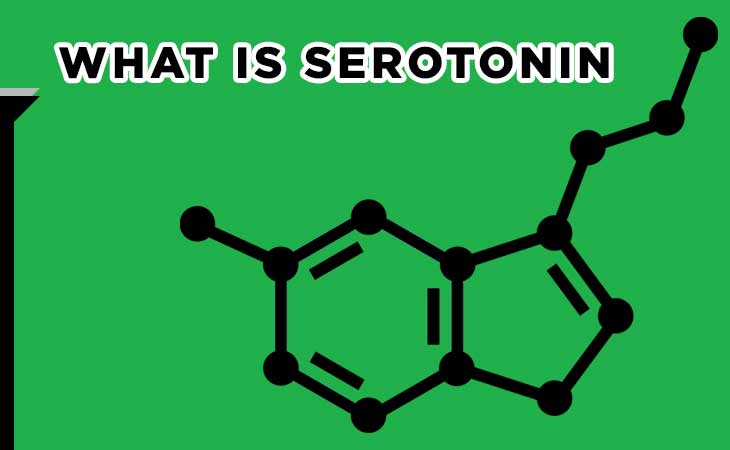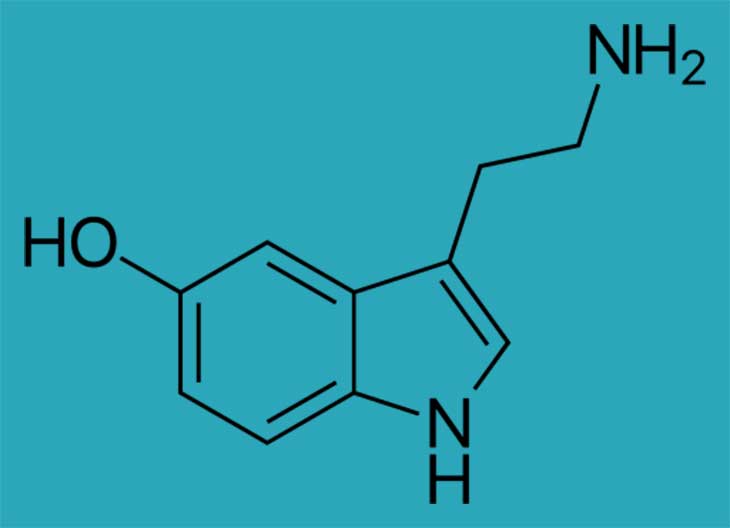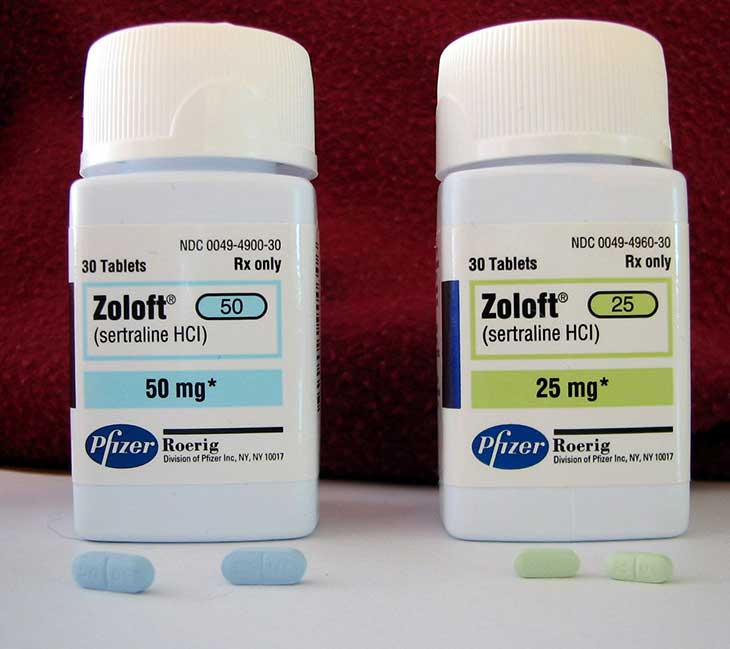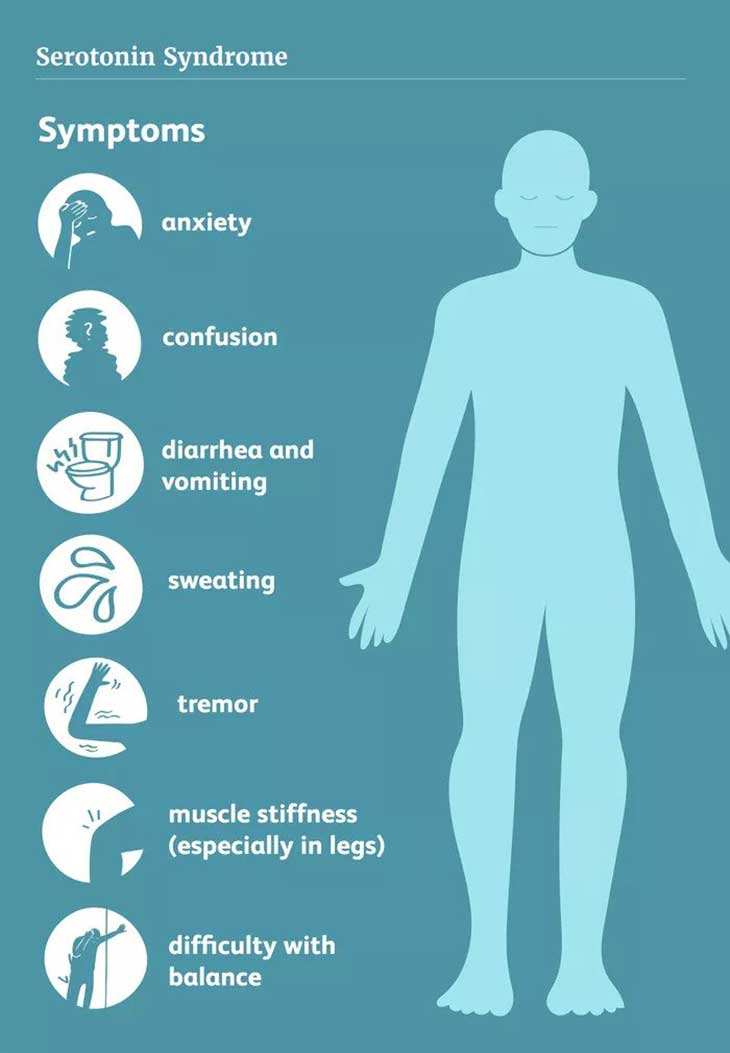The human body is operated in bewilderingly intricate ways through the help of numerous chemicals. Serotonin, a neurotransmitter also referred to as the happy chemical due to its influential role in a person’s happiness and total well being, widely spreads its functions across several parts of the body.
From blood platelets, brain, bowels, to the central nervous system, serotonin is produced in many areas, and in turn, impacts the different body and psychological processes. That is why it is crucial to learn more about this important chemical and neurotransmitter residing in our bodies. In this article, we will discover more about serotonin, and everything it directly and indirectly encompasses.
Delving deeper into Serotonin
A biochemical conversion process combining tryptophan and tryptophan hydroxylase paves the creation of serotonin. Aside from its reputation as a happy chemical, happiness pill, and so on, serotonin is scientifically named as 5-hydroxytryptamine or 5-HT.
Besides, it is also deemed by many as a hormone other than a neurotransmitter. As the latter, it acts as a messenger, delivering signals between nerve cells or neurons.
The many functions of Serotonin
Serotonin basically contributes to the general functioning and various operations of the human body. It affects bowel and sexual function, mood level, sleep cycles, clotting, nausea, and bone density.
-
Influence on bowel movement and blood clotting
Firstly, serotonin plays a role whenever the body is wounded. Platelets release serotonin to help form blood clots. This then reduces blood flow and prevents the wound from further bleeding.
Also, serotonin is mostly produced in the gastrointestinal tract. Its presence helps in reducing appetite, and in regulating bowel movements and function. Whenever you consume something that is irritant or toxic, serotonin is also at play! It helps tap the area in the brain that signals nausea. Production of serotonin in the gut rises in order to successfully expel it out of the body.
-
Effects on mood levels, bone density, and sexual function
Another function of serotonin is its impact on happiness, as noted earlier. It affects a person’s levels of mood, anxiety, and is even more complex than that. Later below, we will discuss the positive and negative effects of having low and high levels of serotonin.
Other than that, serotonin has been seen to hamper sexual activity due to the use of SSRIs. Plus, when there is an increased level of serotonin in an individual’s bones, the risk of osteoporosis is higher. Nevertheless, these are yet to be solidified by further research.
Indications of Serotonin Deficiency
People who have low levels of serotonin manifest common symptoms. These range from anxiety, difficulty sleeping, to aggression. They may even crave foods which are usually starchy or sweet. Because of these, serotonin deficiency has been believed to lead to low mood and poor memory.
Actually, a person using recreational drugs like ecstasy and MDMA affects the amount of serotonin in his or her body. These drugs raise the serotonin levels which then progress to serotonin deficiency. This person may exhibit the same symptoms that are likely to persist for longer days.
Strikingly, the above mentioned symptoms are likewise the most prevalent symptoms of depression. Let’s look more into this observation below.
The link between Serotonin and Depression
Over the years, the connection between the two has been widely discussed in the sphere of medicine. Through time, low levels of serotonin have been speculated to trigger depression. Yet on another note, depression has been said to trigger low levels of serotonin, not the other way around. Regarding which is true is still to be determined.
Their association with each other has been questioned by scientists again and again. Anyway, depression has been theorized to be possibly caused by an imbalance of hormones as well as neurotransmitters in the human body.
The use of SSRIs as Treatment
Selective serotonin reuptake inhibitors (SSRIs) boost serotonin levels. What SSRIs do is help prevent the normal reabsorption of serotonin neurotransmitters in the body. Likewise, SSRIs are FDA approved medication for depression. These include Sertraline (Zoloft), Fluoxetine (Prozac), Citalopram (Celexa), Escitalopram (Lexapro), Vilazodone (Viibryd), and Paroxetine (Paxil, Pexeva).
However, the effectiveness of SSRIs in improving depression and its link to increased serotonin levels is surrounded by uncertainty and controversy. An animal study in 2014 indicates how some mice that couldn’t produce serotonin in their brains displayed no symptoms of depression.
Alternative ways to raise Serotonin levels
Other approaches in boosting serotonin levels are through exposure to light, physical exercises, along with mood induction through psychotherapy or self-induction. However, diet may also be just as instrumental. A number of studies have shown that consuming foods with higher levels of tryptophan are likely to elevate the amount of serotonin in the body. Tryptophan is an amino acid found in foods such as eggs, turkey, and cheese. It is also an ingredient necessary to make serotonin in the body.
Intake of these has been linked to positive effects on mood and cognition. In addition to these are salmon, soya products, talbina, along with milk that contains the protein α-lactalbumin. Along with that, bananas are also considered to elevate the mood as it contains serotonin. However, it will only take effect if the serotonin will successfully enter the brain.
Learning what Serotonin syndrome is
If there is what we call serotonin depletion, there is also what we refer to as serotonin syndrome. This syndrome is otherwise known as serotonin toxicity. There’s too much nerve activity for a person with serotonin syndrome.
Hence, he or she may display signs of confusion, headaches, increased heart rate, agitation, sweating, restlessness, muscle rigidity, pupil dilation, loss of muscle coordination, pressure, goosebumps, shivering, and diarrhea. For severe cases of serotonin syndrome, the symptoms are seizures, high fever, irregular heartbeat, as well as unconsciousness, which can be life-threatening.
But how does serotonin syndrome happen? In most cases, it is caused by drug interaction in the body. These may include illegal drugs, prescribed medications, and dietary supplements.
To paint it simply, it occurs when two of these drugs that are believed to raise high levels of serotonin are taken at the same time. However, the existence of one medical condition also contributes to serotonin syndrome. For instance, a person who has a migraine may want to take triptans for medication. However, that same person may also have taken SSRIs beforehand. Unfortunately, this increases the threat of the syndrome, which is why the FDA has warned the use of the two. Other than drugs, carcinoid tumors also cause the release of large amounts of serotonin.
Effective treatment
People with serotonin syndrome may no longer continue their medication for the symptoms to stop. The main focus of the treatment is to manage the symptoms and bring the serotonin levels back to normal. In more serious cases, however, a person must be taken to the hospital and treated with the necessary medications, like providing oxygen or intravenous fluids.
Conclusion
Although a little of the veil has been lifted, there is still so much to uncover about serotonin, including its benefits and drawbacks. More research must be conducted in order to substantiate the claims swirling around it. Regardless of that, its function in the human body is still powerful and highly impactful.








